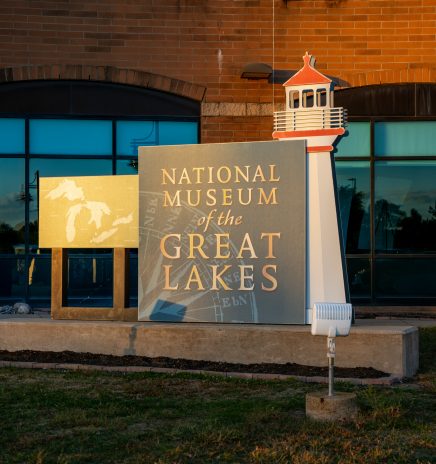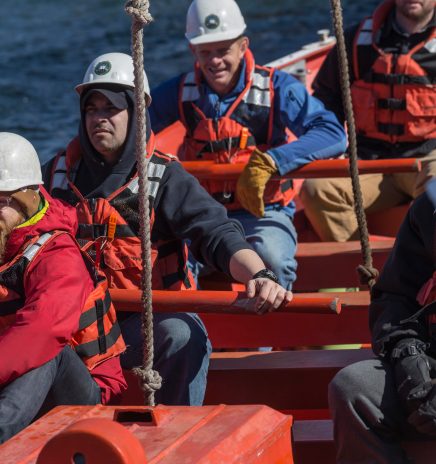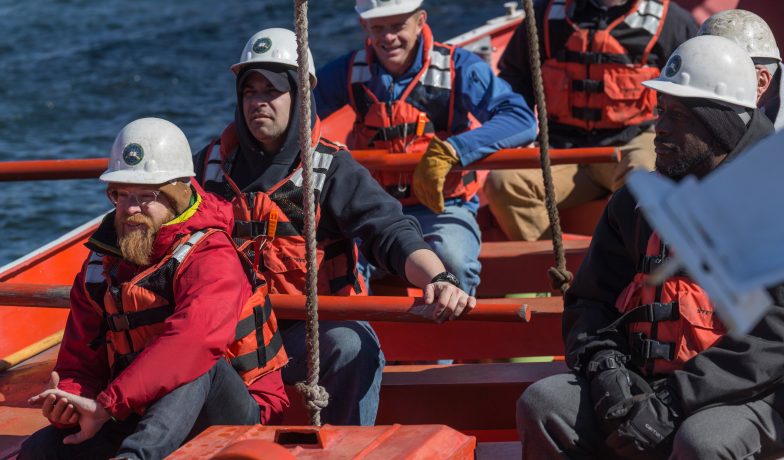Building a Framework To Address Workforce Shortages

For the better part of 70 years, federal maritime policy has followed a familiar pattern – billions of taxpayer dollars funneled into legacy institutions, entrenched programs and rigid policy silos that have too often failed to produce meaningful results. This status quo hasn’t just been ineffective; it has eroded our competitiveness and weakened our workforce pipeline.
But there is a reason for renewed optimism: the SHIPS for America Act, reintroduced in Congress in April and backed by the White House, represents a long-overdue shift toward transformative, forward-looking solutions. It offers an opportunity to break from the cycles of stagnation and reinvest in maritime infrastructure, workforce development and regulatory reform that aligns with 21st century realities. If embraced fully, it could mark a turning point that steers us away from inertia and toward innovation, resilience, and national renewal.
Workforce Challenges
America’s maritime decline is not the result of globalization alone. It is the product of entrenched special interests, institutional inertia and a refusal to modernize policy frameworks that once supported innovation in shipbuilding, seafaring and education. For decades, U.S. maritime policy has prioritized legacy over leadership, creating a regulatory ecosystem that stifles competition, discourages new entrants and actively obstructs scalable, technology-driven training models that could bring tens of thousands into the workforce.
That’s where we’ve been working to make a difference – NMI is host to The Center for Maritime Leadership, which challenged America’s policies on maritime trade and commerce and more importantly, its losses to China regarding strategic competition. Please see https://thecope.org/a-revitalization-plan-for-u-s-maritime-trade-commerce-and-strategic-competition/ which was brought forward at the National Press Club on December 19,2021.
At Northeast Maritime Institute, we see the greatest burden that America faces is the workforce development challenge. NMI has been on the cutting edge and has worked extremely hard to adapt, invest and promulgate policy that works for mariners.
Whether it’s been through creating the first and only independent, private maritime college or through, what we see as our greatest achievement – NEMO° (Northeast Maritime Online), which we’ve spent over a decade designing and deploying solutions to directly confront these challenges. NEMO° is a secure, cloud-based, competency-based maritime education ecosystem that includes everything from asynchronous learning to live simulation, skills assessment, virtual proctoring and micro-credentialing – all aligned with U.S. and international regulatory standards.
Running in parallel to NEMO°, our College of Maritime Science, what we like to call our “Micro-College.” It is redefining how community-based maritime education should work. With a maximum annual cohort of 32 students per year, we deliver 360-degree education: academic rigor, technical training, values based emotional and social intelligence development and career placement. We’ve achieved a 94 percent retention rate and 100 percent job placement for graduates.
These aren’t theoretical models – they are working solutions already delivering results across communities in America and abroad. Our model supports mariners wherever they are, whether on inland waterways, offshore rigs, or in remote towns hundreds of miles from the nearest port. Since its inception in 1981, NMI has trained more than 77,000 professional mariners worldwide. This is scalable, inclusive workforce development – at a fraction of the cost of traditional maritime institutions. In fact, we’re now expanding with a world-class facility in Houma, Louisiana, for our continuing education programs with the same fundamentals and other regions where the industry is growing, but where solid maritime educational and training access is nonexistent.
Redefining Maritime Education
We believe that redefining education, training and certification through thoughtful collaboration represents the kind of innovative, forward-looking solution that the maritime industry urgently needs. Our work in this area has been consistently validated by industry leaders and international partners who recognize the potential of modern, competency-based training models. However, we have encountered growing challenges due to bureaucratic constraints that are hindering, not helping, progress.
Much of this has surfaced through our work with the National Maritime Center (NMC). What was once an extremely productive and collaborative relationship has, in some instances, evolved into a bottleneck, largely due to broader policy shifts and interpretations emanating from U.S. Coast Guard Headquarters – particularly within the Assistant Commandant for Prevent Policy (CG-5P) While it’s important to acknowledge that many of the policies currently being enforced were originally shaped by the NMC itself, the way they are now being applied, often rigidly and without clear justification, has made innovation and responsiveness increasingly difficult.
CG-5P, whose mission includes the development of policy and standards to achieve Marine Safety, Security and Stewardship, has unfortunately introduced a degree of procedural inconsistency and ambiguity into the course approval and instructor authorization process. Programs previously approved under clear and established standards are now delayed or denied based on evolving interpretations and in some cases, what seems to be bias and even retribution. These include unclear thresholds for how curriculum aligns with clear objectives, ambiguity around instructor qualifications and inflexible criteria regarding vessel or facility suitability for assessments.
There is a growing concern across the education and training sector that regulatory oversight is, at times, being influenced by legacy frameworks and special interest pressures – ultimately to the detriment of modern workforce development, access and ethical delivery.
This challenge has been compounded by the recent decommissioning of the U.S. Coast Guard’s Homeport Information Portal, which was shut down on April 12, 2025, with no full replacement expected until at least 2026. Homeport served as the primary online platform for mariner credential verification, course approvals and regulatory updates. Its sudden removal has disrupted essential workflows, delayed hiring and onboarding and introduced new barriers to entry for aspiring mariners. Employers are struggling to verify credentials, and students are left navigating a fragmented system at a time when we should be lowering, not raising barriers to maritime careers.
Public frustration has been vocal and widespread, particularly in professional forums and maritime communities, where the Coast Guard has been criticized for the lack of an interim solution and poor communication throughout this transition.
In a time when the industry faces a critical workforce shortage and urgent calls for modernization, we remain hopeful that renewed collaboration and open dialogue can bring about the alignment needed to move forward. We strongly encourage all stakeholders – industry, training providers and regulators to recommit to a shared vision of innovation, transparency and service to the maritime professionals who keep our economy and national security afloat.
A Framework for Reform
We do not have time for more paralysis. If the United States is serious about reversing its maritime decline, it must pivot away from the status quo. The time has come to replace outdated systems with a regulatory and funding framework that supports bold new models like NEMO° and Micro-Colleges. We must move beyond federally entrenched monopolies in maritime education and open the door to innovation, public-private collaboration and scalable national workforce solutions.
That is why we strongly support the SHIPS for America Act—a legislative initiative that provides the structural opportunity to do exactly that. Backed by Congress and the White House, this Act offers the first meaningful pathway in decades to reinvest in shipbuilding, maritime workforce development and training reform at scale. But its promise will only be realized if paired with action and aligned with proven, adaptable solutions.
Real reform must include a series of initiatives.
- Modernize maritime financial aid to fund digital learning, micro-credentials and modular training paths that meet learners where they are.
- Establish Micro-College campuses and learning hubs in underserved communities, near shipyards, port regions and along inland waterways.
- Acknowledge mariner training for academic credit, opening pathways to upward mobility both at sea and ashore.
- Invest in regulatory reform at the U.S. Coast Guard, ensuring consistency, transparency and alignment with performance-based education models. Quality standards should be overseen by state licensure and national accreditation—not administrative ambiguity.
- Signal to young Americans that maritime careers are a national priority—and back that message with real investment, opportunity and dignity of purpose.
The reality is that the U.S. maritime workforce doesn’t suffer from a lack of talent—it suffers from a lack of vision. We have the tools. We have the technology. We have the will. What we need are leaders with the courage to break from “business as usual” and embrace systems that work.
The future of American maritime strength will not be built by reinforcing broken bureaucracies or funneling taxpayer dollars into failing frameworks. It will be built by empowering the next generation of mariners—wherever they live, however they learn, and with the tools, trust and training they need to lead us into a more resilient future.
This is the mission of the Northeast Maritime Institute – College of Maritime Science. It’s also the spirit of the SHIPS for America Act. Together, they represent a powerful opportunity to finally “Honor the Mariner” -not with lip service, but with structural change.
Eric R. Dawicki, MPA, is president of the Northeast Maritime Institute – College of Maritime Science

From History Keepers to Industry Builders at the National Museum of the Great Lakes
At the National Museum of the Great Lakes, our mission is to preserve, share and celebrate the past, present and future of the Great Lakes story. That story is vast,... Read More

Building a Framework To Address Workforce Shortages
The United States Merchant Marine is at a crossroads – one that could define the future of our maritime sector for generations. As workforce shortages collide with increased global competition,... Read More

